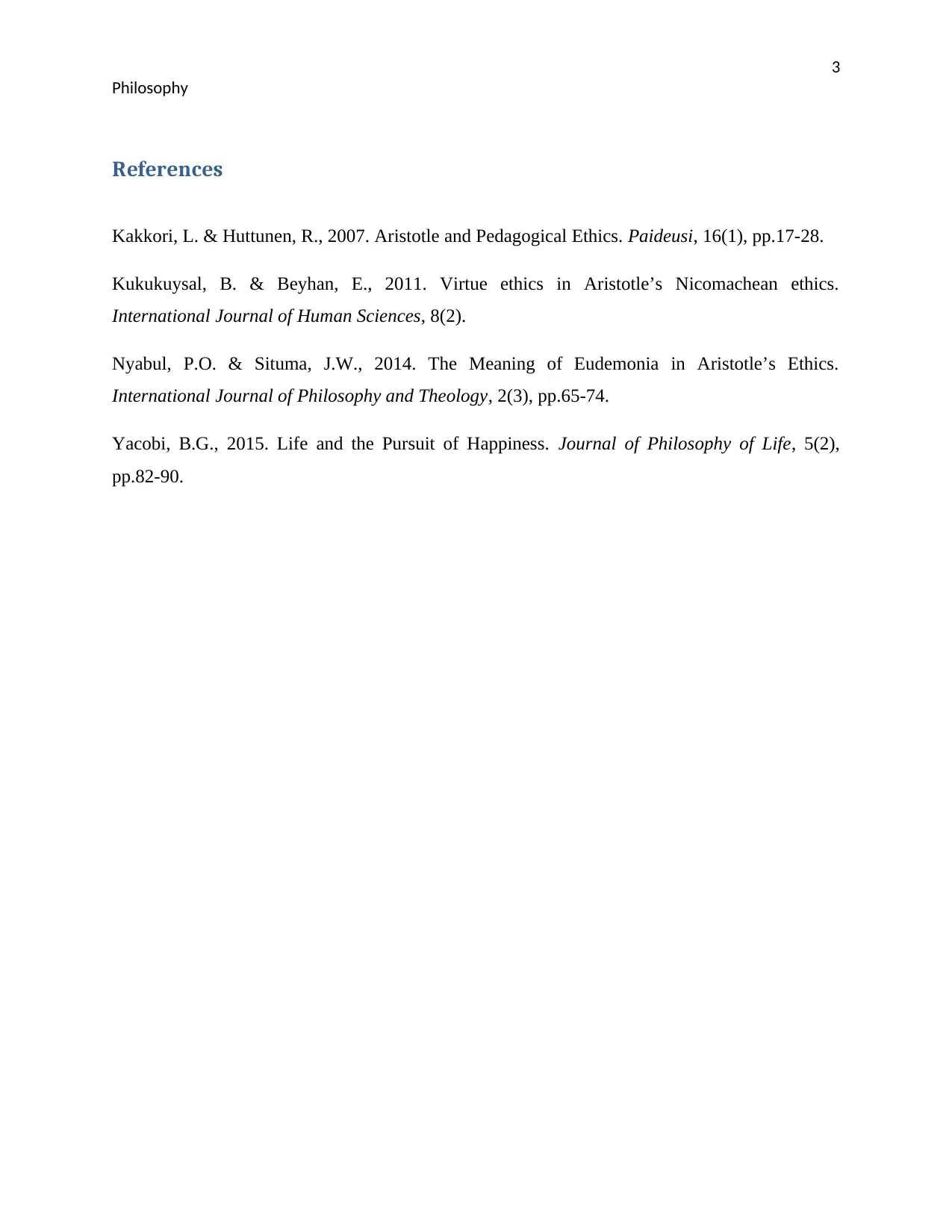Analyzing Plato and Aristotle's Ethical Theories: The Good Life
VerifiedAdded on 2023/06/10
|4
|712
|294
Homework Assignment
AI Summary
This assignment explores the ethical philosophies of Plato and Aristotle, focusing on their contrasting views of the good life, the nature of ethics, and the role of virtue. Plato's concept of the good life emphasizes self-examination and universal, objective ethical principles, while Aristotle focuses on practical human behavior and the importance of realizing one's potential in the empirical world. The assignment delves into Aristotle's critique of Plato's ethical view and explains Aristotle's conditions for an appropriate account of human beings. It also covers the differences in their understanding of ethics, with Aristotle emphasizing the need for virtue and good companionship to achieve happiness. Desklib provides students with access to a wide range of resources, including past papers and solved assignments, to further support their understanding of these complex philosophical concepts.
1 out of 4











![[object Object]](/_next/static/media/star-bottom.7253800d.svg)